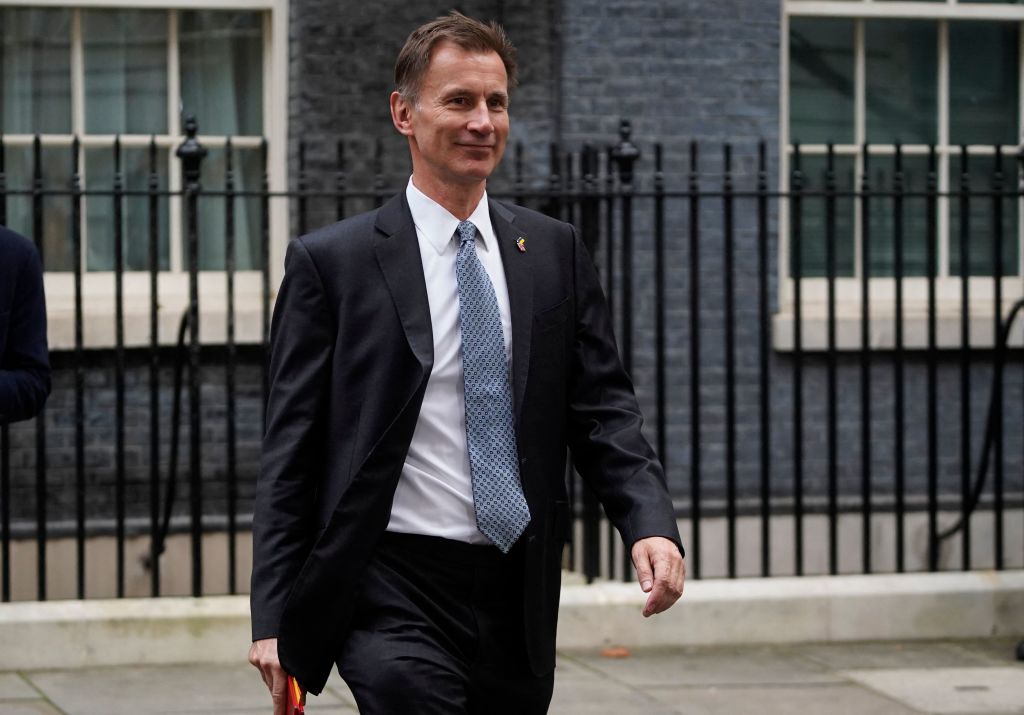Jeremy Hunt’s Autumn Statement had a curious omission: childcare. The pleas of desperate parents who gathered on Whitehall last month during ‘The March of the Mummies’ appear to have fallen on deaf ears. Demonstrators gathered outside Downing Street banging drums and shouting: ‘Dear Rishi Sunak, we want our choices back.’ So why didn’t the Chancellor listen?
Britain’s childcare costs are already among the highest in the world, with the recession and soaring inflation increasing pressures on parents. One way to reduce the burden would be to make nurseries cheaper. For many parents, is cripplingly unaffordable, especially as the current subsidy of 15 hours a week only applies to three and four-year olds. Full-time nursery for children under the age of two can cost almost two-thirds of a parent’s weekly take-home pay. As a result of a reduction in the number of nurseries and childminders, many mothers – 87,000, according to the Office for National Statistics – are unable to work as they either can’t find or afford childcare.
So it would make sense – and bolster our faltering economy – to reduce the cost of nurseries in order to help these women back to work, since they and the nursery workers would all pay tax.
This is hardly a new solution. Earlier this year, Boris Johnson launched a consultation on a plan to relax the staff-to-child ratios in nurseries from 1:4 for two-year-olds to 1:5. Then Liz Truss considered scrapping the whole idea of any caps at all. It’s a tempting fix. Reduced ratios would mean fewer staff so nurseries could reduce their fees.
But Rishi Sunak might be advised to steer clear of a proposal which would undoubtedly be received by howls of protests from staff and parents. When Truss previously suggested such a reduction, back in 2013, more than 20,000 parents signed a petition opposing it. Not a good prospect to present to an already twitchy Tory backbench.
Another reform floated by Truss was to alter the childcare subsidy so that parents, rather than nurseries, be given government cash to spend as they see fit. That would mean the cash could be passed on to grandparents to take on the job. It’s an arrangement that could work well for some families. But the plan is so flawed it’s almost guaranteed to backfire. Around five million grandparents provide regular childcare for their grandchildren. But looking after the children during the holidays or taking time out when they’re ill is quite different from doing the job full-time. Especially when the primary care-giver is likely to be the woman. Busy grandmothers may resent being relegated to the role of nanny-in-chief, once again having their independence curtailed by all the paraphernalia of childcare: nappy-changing, afternoon sleeps, the constant demands of stroppy toddlers: their endless questions; refusals to eat or put on their shoes; that ominous crunch of plastic under foot.
But not everyone would be happy accepting hard cash for looking after their grandkids. Most of the grandmothers I’ve spoken to are horrified at the idea. And once the arrangement becomes financial there’s so much potential for conflict. How much to pay? How many hours? Contributors to gransnet have even reported falling out with their children when requests for childcare are not met.
And grandparents may not, in any case, be the ideal carers. Parents often complain that grandparents spoil the children: never say no, give them too many sweets, let them swear or talk back, or just do whatever they like. For every grandparent who’ll happily take them to the park, cook with them, visit museums, play Poo Bingo and talk to them, there are many others who will plonk the children in front of the television, or allow them to play with laptops without even supervising what they’re browsing.
Truss’s plans have been scrapped but Jeremy Hunt’s Statement shows that the Tories are not rushing to propose any alternatives. At least they appear to have recognised that grandparents are not a magical solution to the childcare conundrum.






Comments